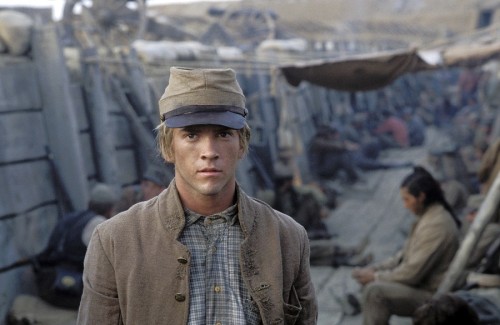
Rebate Report: Will Prague Be the New Albuquerque?
No longer. Prague hasnt had that status and a $250 million annual film economy since 2003. Now the Czech Republic is vying to reposition itself once again as Europes most desirable place to film high-budget movies – or any movies at all.
The Czechs are adopting an approach that would be familiar to New Mexicans. They are experimenting with cash rebates. (Note that rebates arent what sent the Albuquerque Studios into bankruptcy recently. And unlike in New Mexico, the Czechs didnt make the mistake of over-investing in infrastructure that Albuquerque Studios, with eight soundstages, did.)
As of June 21, the Czech Republic will refund 20% of what producers spend making films within that country, provided the film clears an application process that rules it to be culturally appropriate.
A new Golden Age of green jobs fueled by foreign money is within reach, declared Czech producers at the Karlovy Vary International Film Festival, the regions major festival that closed July 10.
Is this ambition reasonable? Could the Czech Republic become Europes Land of Enchantment again, or is this the outline for a reality-drama of Mission Impossible?
To hear the locals talk, Prague was a beneficiary and a victim of the end of communism. Once the Soviet troops left, and the Czech Republic (two-thirds of ex-Czechoslovakia) flexed its entrepreneurial skills, Hollywood and other movie powers arrived to make films in magical locations for lower costs. Pragues studios had everything, and the skilled crews there were equal to any industry standard.
Films like Mission Impossible, The Brothers Grimm, Harts War, Hellboy, Casino Royale, and a flood of epics, remakes and sequels followed. Lots of money was spent. During one summer, two separate concentration camps were built for Hollywood Holocaust sagas. It didnt hurt that war raged for years in the 1990s in the nearby former Yugoslavia, where Croatia was the location of choice it the 1980s.
Yet by 2003 Romania, Bulgaria and Hungary were competing for Hollywood productions. Cold Mountain, shot in Romania for North Carolina, was seen as the tipping point. (In a sour irony, as if the Czechs needed to be reminded, Cold Mountain star Jude Law was this summers special guest at KVIFF.)
Then European countries like Germany and Hungary started offering rebates on film production. The Czech Republics politicians dug in their heels, refusing to subsidize the cigar-and-Armani film execs who, they argued, were already making enough money. And the production goose took her golden eggs elsewhere.
Now the Czech Republic has reversed direction – on films of cultural value, not just any kind of moving picture, according to a new law. Some two dozen applications have been filed for money that has to be spent on rebates by the end of the year.
“Free competition is a great idea,” said Vaclav Marhoul, former head of Barandov Studios in Prague, “but if the European Union is going to give advantages to filmmakers, then the Czech Republic must have them, too.” (Marhoul, who is also a director and screenwriter, has just acquired the film rights to “The Painted Bird,” the violent picaresque Holocaust novel by Jerzy Kosinski, published in 1965. He is considering locations in Europe for the film.)
“There was no concept before, no plan,” said Ludmila Clausova, head of the Czech Film Commission, who said productions came to Prague because they found beautiful locations, plus excellent infrastructure and crews. International production in Prague declined after 2003, some 80%, “because other countries introduced incentives,” she said, “Its not that we changed something – the situation changed outside of the Czech Republic.”
Skeptics say rebates arent all that the Czech Republic needs, and cited rising costs in Prague, which since 1990 has become a gilded destination for tourists and US trust-funded ex-pats. Yet Clausova stresses that the volume of television commercials (for which there are no rebates anywhere in Europe) had not declined in Prague.
She acknowledged that US incentives (in the firm of competitive rebates from state to state) and then-low costs in Canada could have taken business away from Prague. Still, there are already 22 applications for the new rebates program for projects that want to film in Prague, she said. Thats more people than want to film in New Mexico right now.
Yet Tomas Krejci, a Czech producer, said that Prague still has the advantage in its labor force and infrastructure, even though Hungary, its major rival, built studios to accommodate major productions since 2003. As for competition from Oklahoma and Michigan offering rebates, he said, “My prediction is that those two programs wont last, because the public outcry [over cost] will eventually kill them, or it will adjust them, because it does not make sense. One thing is to attract activity in film production for a few years. Another thing is to sustain it.” Krejci wasnt referring to New Mexico, but noted recent stress on studios in Albuquerque before bankruptcy petition were made public. .
Sour grapes, or an opportunity for Prague? Probably the latter, says Peter Tichy, the current sales director of Barrandov Studios, which recently announced awards for new Czech screenplays, in the hope that these scripts might attract co-production funds for films that would eventually be shot in the Czech Republic. “Were looking to Russia as much as we are looking to Hollywood,” he said, handing me a business card written in English on one side and in Czech on the other.
As for Vaclav Marhoul, hes scouting locations for The Painted Bird, but the Czech director/producer says hell probably go abroad. “The Czech Republic is too civilized. I need something like Slovakia or Ukraine.” Perhaps New Mexico, or is it too wild here?
